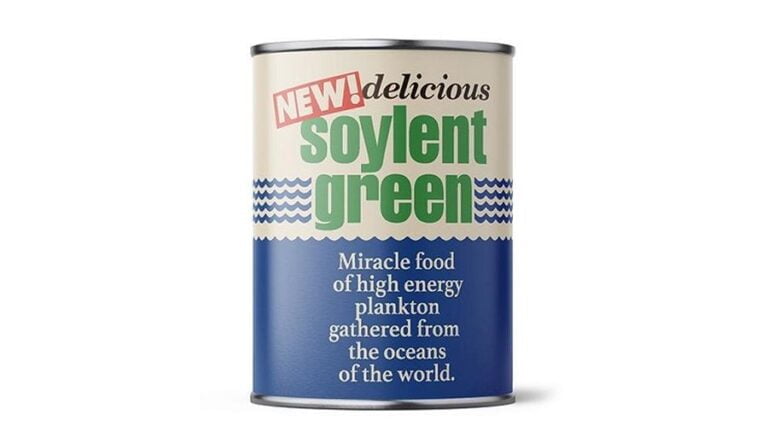All About Nuts: Eight Healthiest Varieties
Do you want a quick, easy, no-prep snack that can keep you fueled on-the-go while reducing your risk of disease and death? It sounds nuts — and it is nuts!
If you are interested in maintaining a healthy diet and lifestyle, nuts are, quite simply, a food group you need in your life. Compact and convenient, in a wide variety of shapes, sizes and flavor profiles, nuts are an easy way to boost nutrition and energy levels without any preparation required.
Besides being portable and easy to consume, eating nuts has been shown to improve heart health and reduce mortality from cardiovascular disease.[i] Consumption of tree nuts and even peanuts (technically a legume, but nutritionally similar) has been significantly associated with a reduced risk of certain cancers[ii] and a reduced risk of all-cause mortality. These nutritional powerhouses are so potent, eating just a handful of nuts per day has been associated with a 20% reduced risk of death.[iii]
In this overview, we explore eight of the healthiest varieties of nuts on the planet. And unlike some exotic superfoods, these exemplars of nutritional potency are generally affordable and available anywhere food is sold. So, read on and discover the many reasons nuts are a great snack choice for keeping you well-fueled and satisfied throughout your busy days.
Eight Healthiest Varieties of Nuts
1. Walnuts
Walnuts not only look like bihemispheric “brains” in miniature, they have been scientifically linked to better brain health. Walnuts are a significant source of omega-3 alpha-linolenic acid, a nutritional requirement for optimal neurological functioning. Moreover, walnuts contain well-known neuroprotective compounds, such as gallic acid, vitamin E isomers, melatonin, folate and polyphenols.
Another benefit of adding walnuts to your diet is better heart health. Walnuts have been shown to improve vascular endothelial function, which aids blood clotting, immune function and platelet adhesion.
Other benefits of walnuts include beneficial microbiome enhancement, which has been linked to improved overall immunity and resistance to disease. There is even evidence that eating walnuts preserves youthful telomere strands, a key element in anti-aging. If you need more convincing, here are 13 reasons to eat more walnuts.
2. Hazelnuts
Hazelnuts, also known as filberts, are believed to have originated over 5,000 years ago in China. Today, nearly 100% of the U.S. crop is grown in the Willamette Valley in Oregon.[iv] While not as common a snack as many other nut varieties, hazelnuts pack serious nutritional punch and a light, sweet flavor that should not be overlooked.
According to Nuts.com, “Hazelnuts have one of the highest ORAC (Oxygen Radical Absorbance Capacity) scores of any nut,” signifying high levels of antioxidants.[v]They also contain the highest proanthocyanidins concentration of any tree nut, with antioxidant capabilities that are 20 times more potent than vitamin C and 50 times more than vitamin E.[vi]
As further testament to the antioxidant power of this tiny tree nut, a hazelnut-enriched diet modulates oxidative stress and inflammation gene expression without weight gain.[vii] And dietary supplementation with hazelnut oil has been shown to reduce serum hyperlipidemia and slow the progression of nonalcoholic fatty liver disease.[viii]
3. Almonds
Almonds are a high-protein staple of many athletes and fitness buffs, and for good reason. Clinical studies have shown that almond supplementation two hours before exercise can improve performance in endurance exercise in trained subjects.[ix]
Fitness enthusiasts and others who are intent on reducing fat in their diet need not shy away from indulging in a healthy handful of these little wonders. Almond supplementation in combination with a low-calorie diet has been shown to improve a preponderance of abnormalities associated with metabolic syndrome, while reducing hyperlipidemia,[x] the presence of high levels of fat in the blood.
Besides being good for your blood and your physical fitness, almond consumption may even reduce your risk of cardiovascular disease.[xi] In fact, one of the best things you may be able to do for yourself is to simply eat 15 almonds per day. But don’t conflate almonds with almond milk, which can contain a measly 2% almonds but a lot of carrageenan, which has been linked to inflammation and colon disease.
4. Macadamias
Macadamia nuts are one of the more precious nut varieties on our list, depending on where you live and shop. Large, velvety and exotic, macadamias are rich and flavorful with U.S. suppliers based almost exclusively in the Hawaiian Islands.
Studies on the health benefits of macadamia nuts once again show that eating fat from healthy sources like nuts will not make you fat, nor will it create problems with cholesterol. Quite the opposite; a macadamia nut-rich diet reduces total and LDL cholesterol in men and women with slightly elevated cholesterol.[xii]
Macadamia nuts are high in monounsaturated fat. When combined with a moderately low-fat diet, macadamias have produced beneficial effects on cholesterol and low-density lipoprotein (LDL) cholesterol levels when compared with a typical American diet. So ditch the chips and cookies; when you’re ready for a snack, fortify yourself with a handful of delicious macadamia nuts instead.
5. Pecans
Like most nut varieties, pecans are a great source of vitamins, minerals and dietary fiber. Flaky and sweet, pecans are a favorite among Southerners (Georgia is one of the top-producing states in the U.S.) who use them in decadent desserts like pecan pie. While skipping the corn syrup and added sugar is best for your health, don’t skip on pecans.
If their delicious taste and inviting texture were not reason enough, studies on pecans have demonstrated a significantly positive effect on cardiometabolic risk,[xiii]thus reducing the likelihood of developing atheroscleroticcardiovascular (CV) disease and diabetes mellitus.
Pecans have significant antioxidant activity,[xiv] possibly due to their high vitamin E content, a powerful antioxidant that protects against cell damage. They have also been shown in clinical studies on mice to support brain health by slowing down the progression of motor-neuron degeneration.[xv]
6. Brazil nuts
Brazil nuts are large tree nuts native to the Amazon rainforest. Besides their satisfying taste and texture (did I mention size?) brazil nuts are one of the best sources of the vital nutrient selenium.[xvi]
Selenium is an essential trace mineral that is only found in certain foods. Low levels of selenium have been linked to fatigue and brain fog, as well as more serious deficiencies such as thyroid problems, immune system dysfunction, infertility and cognitive decline.[xvii]
Increasing selenium levels via Brazil nut supplementation has been associated in clinical trials with improvement in thyroid hormone levels,[xviii] as well as significantly improving blood levels of selenium and glutathione peroxidase in kidney patients undergoing dialysis.
Eating Brazil nuts can also improve your mood. Results of a clinical trial of adults suffering from anxiety showed that the group that was supplemented with 100 micrograms (mcg) of selenium per day for five weeks had less anxiety than the placebo group. According to the report, the lower the level of selenium in the diet, the higher the levels of anxiety, depression and tiredness among patients, all of which decreased following five weeks of selenium therapy.[xix]
The recommended RDA for adults is at least 55 mcg of selenium each day. Eating just a few Brazil nuts each day will keep your selenium tank filled up and make sure you have the benefits of good mood and sufficient energy to tackle your day.
7. Cashews
Cashews are easily one of America’s favorite nuts. This is one snack food fad that actually works. Incorporation of cashews into typical American diets could decrease total cholesterol and LDL cholesterol.[xx] Cashews have the honorable distinction of also being anti-cancer: cashews contain an anticancer catechol, which has demonstrated activity against drug-resistant cancer cell lines.
Cashews may even be able to help the body in utero. In a 2017 animal study, pregnant mice who were fed a cashew supplement produced offspring with more highly matured reflexes and better memory than mice not fed cashews.
Essential fatty acids are indispensable during pregnancy, lactation and infancy, and researchers believe that this nutritional boost positively influenced the transmission of nerve impulses and brain function to the offspring. Whether you’re pregnant or not, eating cashews can be a satisfying way to get the essential fatty acids and dietary fiber that you need each day to enjoy optimal health.
8. Pistachios
Pistachio nuts may come in a shell, but they are worth the effort. These small, flavorful nuts are actually the seeds of the Pistacia vera tree, and they are packed with enough nutrients to make them worth the bit of work required.
Pistachios are a potent source of essential B vitamins, including B6, which is vital to a healthy central nervous system.[xxi] Pistachios also promote heart-healthy blood lipid levels thanks to their fatty acid content that helps maintain antioxidant and anti-inflammatory activity in the body. Studies have shown that a pistachio-enriched and walnut-enriched diet could lower triglycerides, LDL cholesterol and total cholesterol,[xxii]adding to the heart-centric benefits of this delicious snack.
Don’t worry about overdoing it; 1 ounce of pistachios has less than 160 calories and is actually quite a robust serving of 49 to 50 nuts. So, go ahead and indulge in a handful (or two). Your heart will thank you for it.
To learn more about the health benefits of eating nuts, consult the GreenMedInfo.com natural health database with more than 300 abstracts on nut research.
image
References
[i] Nerea Becerra-Tomás, Indira Paz-Graniel, Cyril W C Kendall, Hana Kahleova, Dario Rahelić, John L Sievenpiper, Jordi Salas-Salvadó. Nut consumption and incidence of cardiovascular diseases and cardiovascular disease mortality: a meta-analysis of prospective cohort studies. Nutr Rev. 2019 Oct 1 ;77(10):691-709. PMID: 31361320
[ii] Lang Wu, Zhen Wang, Jingjing Zhu, Angela L Murad, Larry J Prokop, Mohammad H Murad. Nut consumption and risk of cancer and type 2 diabetes: a systematic review and meta-analysis. Nutr Rev. 2015 Jul ;73(7):409-25. PMID: 26081452
[iii] Maira Bes-Rastrollo, Nicole M Wedick, Miguel Angel Martinez-Gonzalez, Tricia Y Li, Laura Sampson, Frank B Hu. Prospective study of nut consumption, long-term weight change, and obesity risk in women. Am J Clin Nutr. 2009 Jun;89(6):1913-9. Epub 2009 Apr 29. PMID: 19403639
[iv]Nuts.com, Nuts, Hazelnuts (Filberts), https://nuts.com/nuts/hazelnuts. Accessed 4/22/2020
[v]Nuts.com, Nuts, Hazelnuts (Filberts), https://nuts.com/nuts/hazelnuts. Accessed 4/22/2020
[vi] Nuts.com, Nuts, Hazelnuts (Filberts), https://nuts.com/nuts/hazelnuts. Accessed 4/22/2020
[vii] Laura Di Renzo, Giorgia Cioccoloni, Sergio Bernardini, Ludovico Abenavoli, Vincenzo Aiello, Marco Marchetti, Andrea Cammarano, Iraj Alipourfard, Ida Ceravolo, Santo Gratteri. A Hazelnut-Enriched Diet Modulates Oxidative Stress and Inflammation Gene Expression without Weight Gain. Oxid Med Cell Longev. 2019 ;2019:4683723. Epub 2019 Jul 4. PMID: 31354906
[viii] Jen-Her Lu, Kai Hsia, Chih-Hsun Lin, Chien-Chin Chen, Hsin-Yu Yang, Ming-Huei Lin. Dietary Supplementation with Hazelnut Oil Reduces Serum Hyperlipidemia and Ameliorates the Progression of Nonalcoholic Fatty Liver Disease in Hamsters Fed a High-Cholesterol Diet. Nutrients. 2019 Sep 14 ;11(9). Epub 2019 Sep 14. PMID: 31540081
[ix] Laura Esquius, Ramon Segura, Guillermo R Oviedo, Marta Massip-Salcedo, Casimiro Javierre. Effect of Almond Supplementation on Non-Esterified Fatty Acid Values and Exercise Performance. Nutrients. 2020 Feb 27 ;12(3). Epub 2020 Feb 27. PMID: 32121011
[x]David J A Jenkins, Cyril W C Kendall, Augustine Marchie, Andrea R Josse, Tri H Nguyen, Dorothea A Faulkner, Karen G Lapsley, Jeffrey Blumberg. Almonds reduce biomarkers of lipid peroxidation in older hyperlipidemic subjects. J Nutr. 2008 May;138(5):908-13. PMID: 18424600
[xi] Michelle A Lee-Bravatti, Jifan Wang, Esther E Avendano, Ligaya King, Elizabeth J Johnson, Gowri Raman. Almond Consumption and Risk Factors for Cardiovascular Disease: A Systematic Review and Meta-analysis of Randomized Controlled Trials. Adv Nutr. 2019 Jun 27. Epub 2019 Jun 27. PMID: 31243439
[xii] Amy E Griel, Yumei Cao, Deborah D Bagshaw, Amy M Cifelli, Bruce Holub, Penny M Kris-Etherton. A macadamia nut-rich diet reduces total and LDL-cholesterol in mildly hypercholesterolemic men and women. Basic Clin Pharmacol Toxicol. 2009 Mar;104(3):206-10. Epub 2009 Jan 21. PMID: 18356332
[xiii] Diane L McKay, Misha Eliasziw, C Y Oliver Chen, Jeffrey B Blumberg. A Pecan-Rich Diet Improves Cardiometabolic Risk Factors in Overweight and Obese Adults: A Randomized Controlled Trial. Nutrients. 2018 Mar 11 ;10(3). Epub 2018 Mar 11. PMID: 29534487
[xiv] Chatrapa Hudthagosol, Ella Hasso Haddad, Katie McCarthy, Piwen Wang, Keiji Oda, Joan Sabaté. Pecans acutely increase plasma postprandial antioxidant capacity and catechins and decrease LDL oxidation in humans. J Nutr. 2011 Jan;141(1):56-62. Epub 2010 Nov 24. PMID: 21106921
[xv]UMass Lowell, News, Stories, 2009-10, Shea Pecan Study, Pecans Provide Neurological Protection, https://www.uml.edu/news/stories/2009-10/shea_pecan_study.aspx. Accessed 4/22/2020.
[xvi] Christine D Thomson, Alexandra Chisholm, Sarah K McLachlan, Jennifer M Campbell. Brazil nuts: an effective way to improve selenium status. Am J Clin Nutr. 2008 Feb;87(2):379-84. PMID: 18258628
[xvii] Shreenath AP, Dooley J. Selenium Deficiency. [Updated 2020 Mar 25]. In: StatPearls [Internet]. Treasure Island (FL): StatPearls Publishing; 2020 Jan. https://www.ncbi.nlm.nih.gov/books/NBK482260/
[xviii] Milena Barcza Stockler-Pinto, Juan Jesús Carrero, Luciene De Carvalho Cardoso Weide, Silvia Maria Franciscato Cozzolino, Denise Mafra. EFFECT OF SELENIUM SUPPLEMENTATION VIA BRAZIL NUT (BERTHOLLETIA EXCELSA, HBK) ON THYROID HORMONES LEVELS IN HEMODIALYSIS PATIENTS: A PILOT STUDY. Nutr Hosp. 2015 Oct 1 ;32(4):1808-12. Epub 2015 Aug 1. PMID: 26545554
[xix] Benton D., Cook R. The impact of selenium supplementation on mood. Biol Psychiatry. 1991 Jun 1;29(11):1092-8. https://www.ncbi.nlm.nih.gov/pubmed/1873372
[xx] Eunice Mah, Jacqueline A Schulz, Valerie N Kaden, Andrea L Lawless, Jose Rotor, Libertie B Mantilla, DeAnn J Liska. Cashew consumption reduces total and LDL cholesterol: a randomized, crossover, controlled-feeding trial. Am J Clin Nutr. 2017 Mar 29. Epub 2017 Mar 29. PMID: 28356271
[xxi] Hernández-Alonso P, Bulló M, Salas-Salvadó J. Pistachios for Health: What Do We Know About This Multifaceted Nut?. Nutr Today. 2016;51(3):133–138. doi:10.1097/NT.0000000000000160
[xxii] Kai Liu, Suocheng Hui, Bin Wang, Kanakaraju Kaliannan, Xiaozhong Guo, Linlang Liang. Comparative effects of different types of tree nut consumption on blood lipids: a network meta-analysis of clinical trials. Am J Clin Nutr. 2019 Nov 27. Epub 2019 Nov 27. PMID: 31773150
“© July 5, 2020 GreenMedInfo LLC. This work is reproduced and distributed with the permission of GreenMedInfo LLC. Want to learn more from GreenMedInfo? Sign up for the newsletter here //www.greenmedinfo.com/greenmed/newsletter.”







